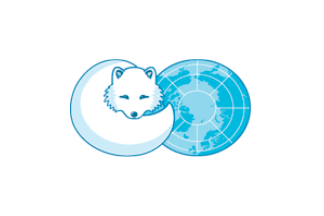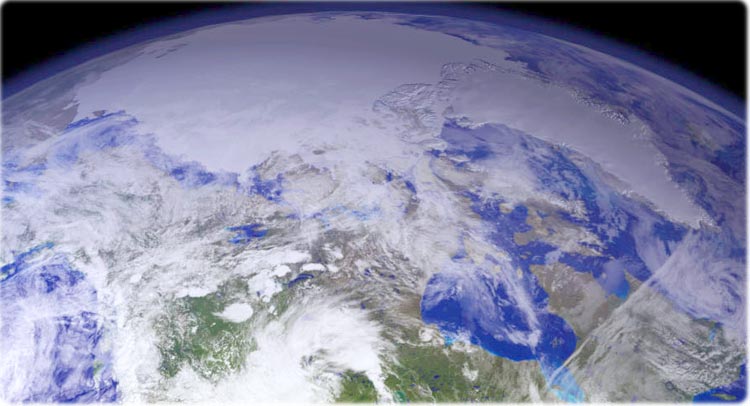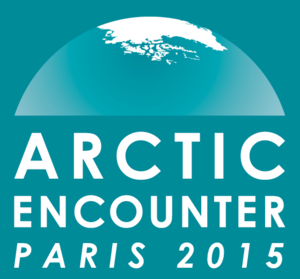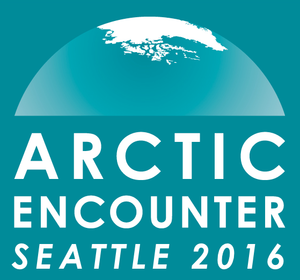|
|
|
|
|
|
|
|
Today's Congressional Action:
The House of Representatives and Senate are in session and expected to consider non-Arctic legislation.
|
 Arctic Council Concludes 1st Meeting Under US Chairmanship. During the three-day meeting, Arctic Council officials made the most headway on an effort to mitigate the impacts of black carbon and methane in the Arctic. State Department deputy secretary David Balton chairs the Council's senior-most officials. "These short-lived pollutants - black carbon and methane - cause particular climate-related problems in the Arctic," he says. Black carbon is particulate waste from fossil fuel combustion. Unsurprisingly, it's black. So when it lands on snow and ice, it has a warming effect. Alaska Public Radio Arctic Council Concludes 1st Meeting Under US Chairmanship. During the three-day meeting, Arctic Council officials made the most headway on an effort to mitigate the impacts of black carbon and methane in the Arctic. State Department deputy secretary David Balton chairs the Council's senior-most officials. "These short-lived pollutants - black carbon and methane - cause particular climate-related problems in the Arctic," he says. Black carbon is particulate waste from fossil fuel combustion. Unsurprisingly, it's black. So when it lands on snow and ice, it has a warming effect. Alaska Public Radio
[Opinion] Japan's Arctic Policy: The Paper Chase. Among the non-Arctic states that have recently begun to better define and expand their circum-polar policies, Japan has not had the same international visibility as China and western Europe. Tokyo sought to address that omission during the Arctic Circle conference in Reykjavík this month with the announcement, during the first day of the event, that the government was releasing its first ever white paper on the country's comprehensive Arctic policy (a provisional English translation can be read on Arctic Portal). The sudden announcement of the paper's release was made at the conference by Japan's Arctic ambassador, Kazuko Shiraishi (pictured above), and was followed by a breakout panel discussion about Japan's wider Arctic initiatives in which Ms Shiraishi and other regional specialists took part. Earlier in the day, the specifics of the paper were announced in Tokyo by the Japanese Headquarters for Ocean Policy, led by Shinzo Abe, the prime minister. The Arctic Journal
 China Mulls Shortcut Shipping Route to Europe Through Arctic. Chinese shipping experts are considering routine navigation through Arctic waters to link China and Europe in what would be a shortcut to bypass the route that passes through the Malacca Strait and Suez Canal. In October 2015, Chinese vessel Yong Sheng finished a record-setting round trip from Europe to north China by sailing through the Arctic waters of the Northeast Passage and docking at Tianjin Port. Business Standard China Mulls Shortcut Shipping Route to Europe Through Arctic. Chinese shipping experts are considering routine navigation through Arctic waters to link China and Europe in what would be a shortcut to bypass the route that passes through the Malacca Strait and Suez Canal. In October 2015, Chinese vessel Yong Sheng finished a record-setting round trip from Europe to north China by sailing through the Arctic waters of the Northeast Passage and docking at Tianjin Port. Business Standard
[Canada] [Opinion] Unmuzzling Government Scientists is Just the First Step. As prime-minister-designate Justin Trudeau and his Liberals take control of the federal government, Ottawa's media managers are sure to line up to defend the virtues of media control. After almost 10 years under Stephen Harper, the managers have honed the art of controlling and blocking access to federal researchers, crafting "media lines" that seldom answer the questions asked and frustrating journalists. This is a catch-all ASF view; only displays when an unsupported article type is put in an ASF drop zone. Mr. Trudeau has vowed to reopen the lines of communication and take the "muzzle" off federal scientists. Even a modest improvement in communication would be welcome. But a return to more open government will require not only new policy, but also a new mindset in the bureaucracy the Conservatives have left behind. The Globe and Mail
Climate Change Progress at Arctic Council's First Meeting with US Chair. During the three-day meeting of the international Arctic Council that wrapped last week in Anchorage, officials made the most headway on an effort to mitigate the impacts of black carbon and methane in the Arctic. State Department deputy secretary David Balton chairs the Council's most senior officials. "These short-lived pollutants - black carbon and methane - cause particular climate-related problems in the Arctic," he said. KTOO
 Arctic Nations to Meet Next Week at US Coast Guard Academy. The U.S. Coast Guard Academy is hosting a gathering of nations with a stake in the Arctic next week to work on improving maritime cooperation in the region. The summit at the academy in New London is intended to help set up the new Arctic Coast Guard Forum. Canada, Denmark, Finland, Iceland, Norway, Sweden, Russia and the U.S. are members of the forum, which is charged with strengthening cooperation and coordination in the Arctic. Navy Times Arctic Nations to Meet Next Week at US Coast Guard Academy. The U.S. Coast Guard Academy is hosting a gathering of nations with a stake in the Arctic next week to work on improving maritime cooperation in the region. The summit at the academy in New London is intended to help set up the new Arctic Coast Guard Forum. Canada, Denmark, Finland, Iceland, Norway, Sweden, Russia and the U.S. are members of the forum, which is charged with strengthening cooperation and coordination in the Arctic. Navy Times
|
Legislative Action
No Arctic legislation was formally considered Friday.
|
|
Future Events
The Polar Oceans and Global Climate Change, November 3-6, 2015 (La Jolla, California USA). The American Polar Society will host this Symposium at Scripps Institution of Oceanography. A flyer with a partial list of presenters is available on the Society's website (americanpolar.org) and from the Society's Membership Chairman by email.
Forum for Arctic Modeling and Observational Synthesis Meeting, November 3-6, 2015 (Cape Cod, MA, USA). On November 3rd, the 2015 School for young scientists will consider "Regional Oceanography of the Arctic marginal seas" with lectures covering major features of atmospheric, sea ice and oceanographic regimes of the: Bering, Chukchi, Beaufort, East-Siberian, Laptev Sea, Kara, Barents and Nordic seas. On November 4-6, the meeting portion will summarize project accomplishments for the last 3 years of activities and will focus on the formulation of scientific questions and directions for FAMOS future research (2016-2019) to: (a) improve Arctic modeling, employing very high resolution models; (b) develop and test new arctic monitoring/observing systems and (c) improve predictions of Arctic environmental parameters with reduced uncertainties.
Due North: Next Generation Arctic Research & Leadership, November 5-8, 2015 (Calgary, Alberta, Canada). The Association of Canadian Universities for Northern Studies (ACUNS) will convene an interdisciplinary conference of early career scientists working on Arctic issues. Topics will include: Arctic Communities, Arctic Sustainable Development, Arctic Wildlife, Ecosystem and Biodiversity, Arctic Food Security, Arctic Landscapes, Climate Change and Adaptation, Disaster Risk Management, Policy, Politics and Leadership, Arctic Environment (Data and Techniques), Arctic Resources, and Future of Arctic.
Matchpoints Seminar, November 12-13, 2015 (Aarhus, Denmark). The purpose of the conference is to provide a forum for policy-makers and academics to deliberate on how the security, resilience and sustainability of the globalized Arctic region and its peoples may be enhanced, and what instruments of governance may most suitably contribute. The conference will spell out (1) how the different relevant dimensions of security (military, economic, environmental, energy and human security) manifest themselves in the governing / governance arrangements in the Arctic; (2) how the challenges associated with each manifest themselves, individually and together; and (3) what forms of governing arrangements can best help to address the challenges. The conference will also focus on (4) how the Nordic countries and nations, including Greenland, the Faroe Islands and Aaland Islands, may contribute to the peace, stability and prosperity of the Arctic region through collaborative efforts based on their shared social, human, environmental and democratic values.
** New this week** Arctic Circle Forum (ACF) Singapore, November 12, 2015 (Singapore). The event will be hosted by The Arctic Circle and Singapore Maritime Institute (SMI), with the support of the Singapore Government. The ACF Singapore will be opened by President of Iceland Ólafur Ragner Grímsson and Deputy Prime Minister and Coordinating Minister for National Security of Singapore Teo Chee Hean. Discussions will focus on a range of topics related to Arctic shipping, infrastructure financing, ocean science and research, as well as global collaboration on Arctic affairs. Among the speakers and participants will be Senior Arctic Officials, representatives of major shipping companies, investment funds, and scientific institutes from the United States, Europe, and a number of Asian states.
Arctic Observing Open Science Meeting, November 17-19, 2015 (Seattle, Washington). The Arctic Observing Open Science Meeting will be 2.5 days and held at the Hyatt at Olive 8 in Seattle, Washington. The conference will bring together individuals and teams involved in the collection, processing, analysis, and use of observations in the Arctic - from academia, agencies, industry, and other organizations. The meeting will be convened as a combination of plenary talks, parallel science sessions, and a poster session. The deadline for the Meeting Registration is Tuesday, 20 October. The agenda and registered attendees can be found on the meeting website.
In the Spirit of the Rovaniemi Process 2015, November 24-26, 2015 (Rovaniemi, Lapland, Finland).When the Arctic Environmental Protection Strategy, the so-called Rovaniemi Process, was adopted in 1991, it aimed at overcoming divisions and turning the zone of Cold War military tensions into a region of peace and co-operation. In this joint effort focusing on the protection of environment, and later, sustainable development, the Arctic states supported by indigenous organizations laid grounds for institutionalized collaboration and the emergence of Arctic regional identity. The second international conference will bring together decision-makers, scholars, artists, designers and students to address these questions and discuss the Arctic in global, regional and local perspectives.
Arctic Encounter Paris (AEP 2015), December 11-12, 2015 (Paris, France) (During the UN Convention on Climate Change - COP21). The Arctic Encounter Paris will take place at the French Senate at Luxembourg Palace and the  French Military College, École Militaire, in Paris, France, on the final days of the monumental United Nations Convention on Climate Change (COP21) where thousands of global citizens and government delegates will be gathered to deliberate the world's response to our changing planet in Paris. The AEP is the only Arctic policy side event currently planned to take place during the UN Convention. A reception will take place following the closing panel. French Military College, École Militaire, in Paris, France, on the final days of the monumental United Nations Convention on Climate Change (COP21) where thousands of global citizens and government delegates will be gathered to deliberate the world's response to our changing planet in Paris. The AEP is the only Arctic policy side event currently planned to take place during the UN Convention. A reception will take place following the closing panel.
 Fall meeting of the American Geophysical Union, December 14-18, 2015 (San Francisco, California). The 48th meeting of the union brings together nearly 24,000attendees, and lots of Arctic research results. The scientific program is here. There will be several Arctic-related "Town Hall" meetings, including those sponsored by NASA, DOE, NSF, ISAC, IARPC, and SEARCH. Fall meeting of the American Geophysical Union, December 14-18, 2015 (San Francisco, California). The 48th meeting of the union brings together nearly 24,000attendees, and lots of Arctic research results. The scientific program is here. There will be several Arctic-related "Town Hall" meetings, including those sponsored by NASA, DOE, NSF, ISAC, IARPC, and SEARCH.
This symposium is part of an ongoing initiative of the National Academies of Science Polar Research Board to expand public understanding of why the dramatic changes affecting the Arctic region ultimately matter to us all. The agenda features engaging presentations and discussions with top Arctic science and policy experts, and displays and interactive exhibits that illustrate Arctic change and its global impacts. The event is free and open to the public. There are sponsorship opportunities, and a call for exhibitor applications (by Oct.31, 2015). Audience space is limited, so register today; and please encourage your friends, neighbors, and colleagues to participate-as our goal is to reach well beyond the small circle of specialists who typically attend Arctic-themed events in the DC area. The U.S. Arctic Research Commission is helping to sponsor this event.
 Building upon the preceding Arctic Encounter event in Paris, the third annual Arctic Encounter Symposium (AES) in Seattle, Washington will convene policymakers, industry leaders, and leading experts to confront the leading issues in Arctic policy, innovation, and development. As the largest annual Arctic policy event in the United States, the AES mission is to raise awareness, engage challenges, and develop solutions for the future of a region and a people. The two-day program includes two keynote luncheons, expert plenary sessions, break out sessions, a networking cocktail reception and seated dinner. A closing reception will take place at the conclusion of the program. Building upon the preceding Arctic Encounter event in Paris, the third annual Arctic Encounter Symposium (AES) in Seattle, Washington will convene policymakers, industry leaders, and leading experts to confront the leading issues in Arctic policy, innovation, and development. As the largest annual Arctic policy event in the United States, the AES mission is to raise awareness, engage challenges, and develop solutions for the future of a region and a people. The two-day program includes two keynote luncheons, expert plenary sessions, break out sessions, a networking cocktail reception and seated dinner. A closing reception will take place at the conclusion of the program.
|
|

  
4350 N. Fairfax Drive, Suite 510
Arlington, VA 22203, USA
External links in this publication, and on the USARC's World Wide Web site ( www.arctic.gov) do not constitute endorsement by the US Arctic Research Commission of external Web sites or the information, products or services contained therein. For other than authorized activities, the USARC does not exercise any editorial control over the information you may find at these locations. These links are provided consistent with the stated purpose of this newsletter and the USARC Web site.
|
|
|
|
|
|
|
|
|